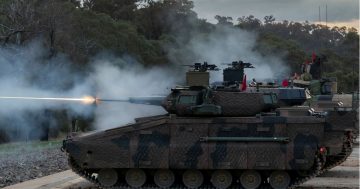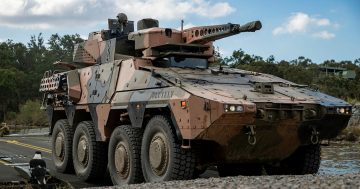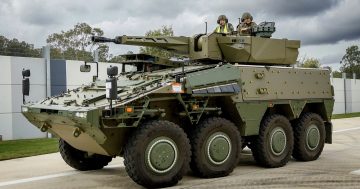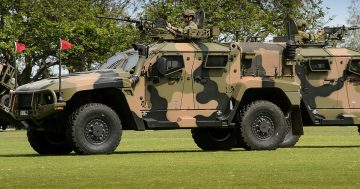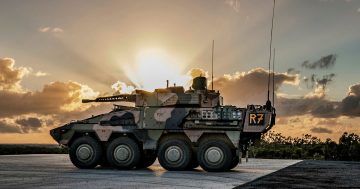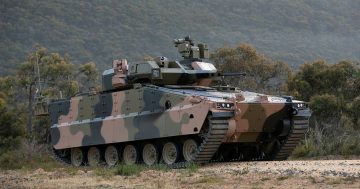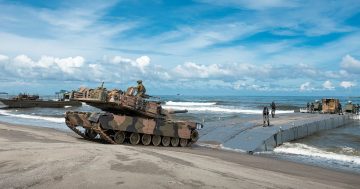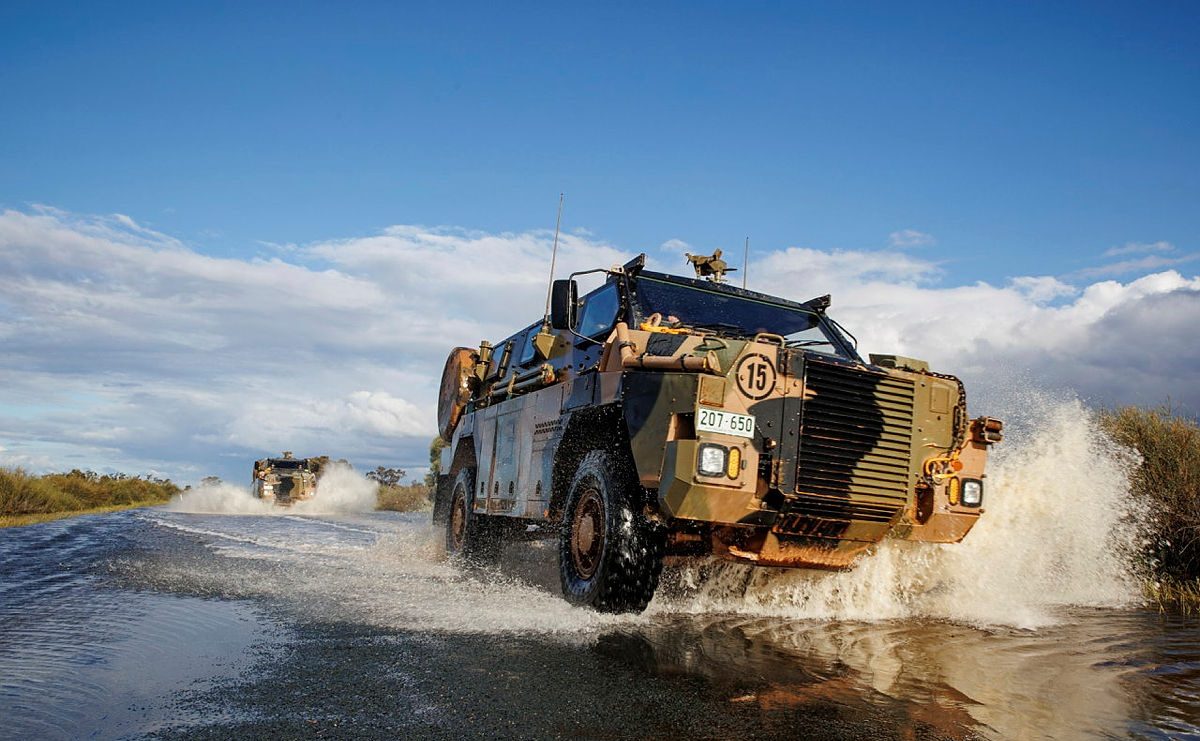
Army Bushmaster PMV-Ms in action during Operation Flood Assist. Photo: ADF.
The Federal Government has thrown Bendigo-based armoured vehicle manufacturer Thales Australia a lifeline by ordering 78 additional Bushmaster Protected Military Vehicles – Medium (PMV-M) for the Australian Defence Force.
The $160 million decision comes at a time when orders from Australia’s three armoured vehicle manufacturers were either about to run dry, or had been drastically reduced in recent months.
To date, Thales Australia has built nearly 1200 Bushmasters over two decades. The vast majority of these have been taken by the ADF, with small numbers exported to the UK, Netherlands, New Zealand, Japan, Indonesia, Jamaica, and Fiji, while 90 have been donated to Ukraine. It will ensure the Bushmaster line remains open for 18 more months while additional orders are sought.
Ukraine has also sought a donation of an unspecified number of Thales Hawkei PMV-Light vehicles. The Hawkei is newer than the Bushmaster and is yet to enter full service with the Australian Army due to reported defects with its braking system, although its production run of nearly 1100 vehicles is almost complete.
“On global terms, 1200 Bushmasters is a relatively small order,” the former Army head of Land Capability, Major General Gus McLachlan (Ret’d) told Region. “If you don’t get follow-on orders, you eventually shut up shop and you can end up with an industry ‘valley of death’ like we did with shipbuilding where we lost all that expertise.
“A couple of times governments have bought some vehicles even when Defence hadn’t asked for them, just to keep the production line alive. As a result, it’s probably the most successful Australian vehicle program since WWII.
“But the problem with systems like the Bushmaster and Hawkei is that they’re relatively unsophisticated, and most big nations would feel they’re capable of building something similar themselves.
“So you’re often pushing a vehicle into a market flooded with similar looking vehicles. Everyone knows Bushmaster and Hawkei are great vehicles, but there are dozens of vehicles like that which have emerged out of the Afghan and Iraq wars, so they’re ‘not enough better’ to stand out.”
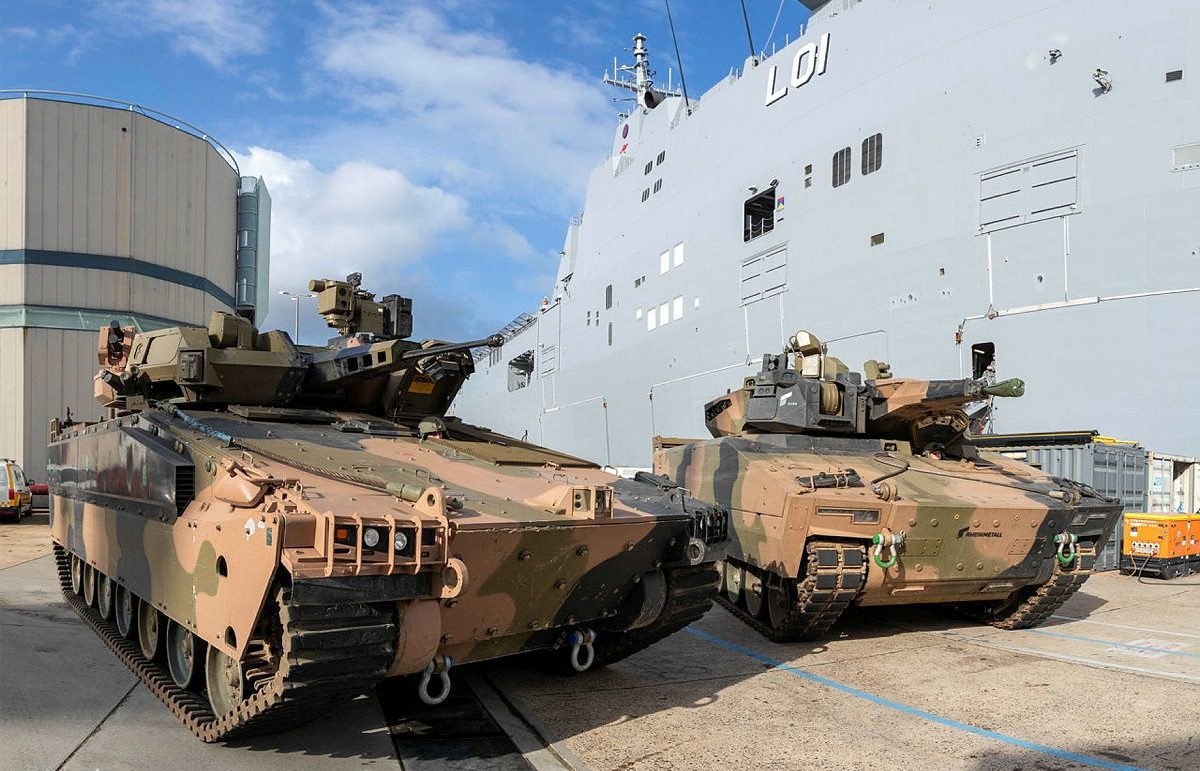
Hanwha AS21 and Rheinmetall KF41, the two contenders for the much-reduced LAND 400 Phase 3 IFV requirement. Photo: ADF.
Australia has two other armoured vehicle manufacturers – the local subsidiary of German industrial company Rheinmetall has its Military Vehicles Centre of Excellence (MILVEHCOE) at Ipswich in Queensland, and South Korean giant Hanwha’s Australian subsidiary is building a new facility at Avalon in Victoria.
Rheinmetall Defence Australia’s MILVEHCOE was established to build 183 Boxer 8×8 Combat Reconnaissance Vehicles (CRV) which the Australian Army ordered in 2018, and to support and sustain the Army’s large fleet of modern Rheinmetall HX-series trucks.
MILVEHCOE is also planned to be the manufacturing location for Rheinmetall’s Lynx KF41 Infantry Fighting Vehicle (IFV) bid for Project LAND 400 Phase 3 to replace the Australian Army’s Vietnam-era M113AS4 Armoured Personnel Carriers (APC).
But with the reduction in scale of LAND 400 Phase 3 as outlined in April’s Defence Strategic Review (DSR) from a planned 450 vehicles to 129, Rheinmetall has been asked to re-submit its proposal based on the lower number.
Rival Hanwha Defence Australia is also feeling the effects of the DSR. It was contracted in 2022 to build 30 AS9 Self-Propelled Howitzers and 15 AS10 Armoured Ammunition Resupply Vehicles (AARV) under Project LAND 8116 Phase 1, while a planned Phase 2 would have added a similar number of vehicles to equip a second Army regiment later this decade.
Hanwha also has a LAND 400 Phase 3 offering, and it too has had to resubmit its bid for its AS21 Redback IFV in the wake of the DSR.
To accommodate the planned AS9/10 and possible AS21 builds, Hanwha is constructing a new manufacturing facility at Avalon which will include a test track and options to expand for additional product lines.
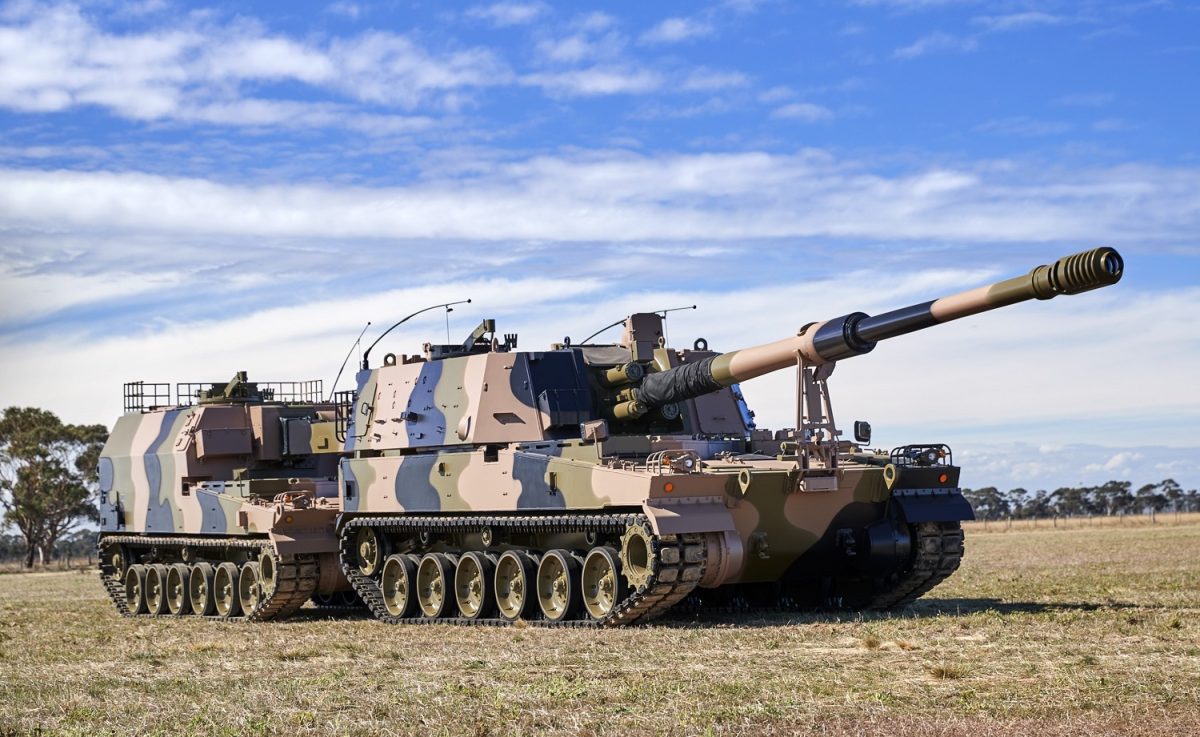
The planned Hanwha AS9/AS10 Self-Propelled Howitzer fleet will be halved. Photo: Hanwha Australia.
With the reduction of its LAND 400 Phase 3 prospects and the DSR’s cancellation of LAND 8116 Phase 2, Hanwha’s facility will be producing fewer vehicles for Australia than planned.
But Rheinmetall and Hanwha remain confident of securing export work.
As Region reported last month, Rheinmetall Defence Australia is close to securing a manufacturing contract of 100 Boxer CRVs for Germany as that country looks to bolster its defences in the face of an emboldened Russia.
“MILVEHCOE is world class, the equal of any vehicle manufacturing facility in the world,” Major General McLachlan (Ret’d) said. “The theory was that Australia would procure enough vehicles over the life of the factory which would create significant opportunities to sell those vehicles into the global system.”
And with South Korea’s close proximity to artillery and missile threats posed by North Korea, Hanwha is also keen to establish a second-source manufacturing facility which can resupply the south’s military if necessary, as well as build SPHs and AARVs for export customers such as Poland, Egypt and other customers.
“South Korea has signalled all along the Avalon facility will be a base for them to produce outside the rocket range of potential adversaries,” he said. “So, it might just be the timing of these opportunities that saves them, and we could possibly become a hub to contribute into the global system.”












